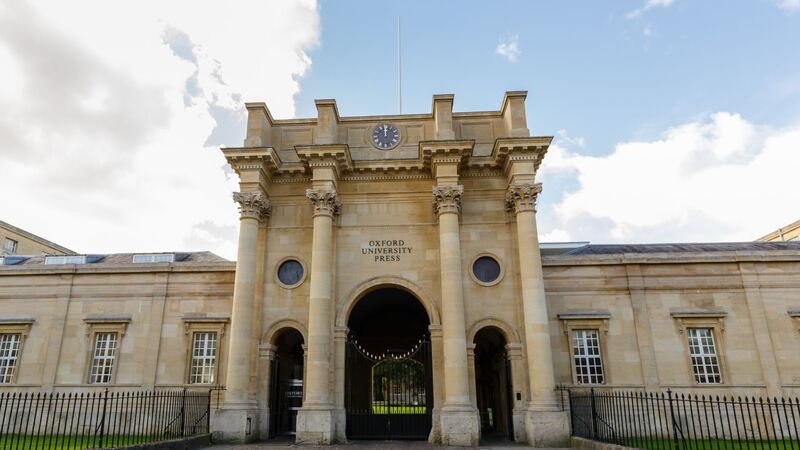You are viewing your 1 free article this month. Login to read more articles.
OUP investigates possible update to definition of 'woman'
Oxford University Press editors are investigating a possible update to its definition of "woman", after an online petition, which has almost 30,000 signatures, branded the definitions used as "sexist" and urged the publisher to change its definition in various publications.
OUP said its "dictionaries reflect rather than dictate how language is used" though editors are investigating a possible update.
Marketing and PR consultant Maria Beatrice Giovanardi launched the petition earlier this summer on Change.org, drawing attention to definitions featured in Oxford University Press titles.
The petition, which has more than 29,000 signatures, reads: “Have you ever searched online for the definition of a woman? 'B***h, besom, piece, bit, mare, baggage, wench, petticoat, frail, bird, bint, biddy, filly' - these are the words which the Oxford's English Dictionary online tells us mean the same as ‘woman’. This sexist dictionary must change.”
Definitions featured on the 'Change Oxford Dictionary’s Sexist Definition of ‘Woman’ include: “Ms September will embody the professional, intelligent yet sexy career woman,” “If that does not work, they can become women of the streets,” “male fisherfolk who take their catch home for the little woman to gut” and “I told you to be home when I get home, little woman”.
A spokesperson for Oxford University Press told The Bookseller: “For clarity, I’d like to make clear that the synonyms and examples which form the focus of the petition come from our current English dictionaries, not the Oxford English Dictionary, which is a historical record of the evolution of the English language. As ever, we appreciate feedback and comment on our lexical content but it’s worth reiterating that our dictionaries reflect rather than dictate how language is used which means that we include terms that are often considered pejorative or have negative historical associations. Our head of lexical content strategy, Katherine Martin, has written a piece on our blog to explain a little more about how we select and display example sentences and terms which may have negative connotations.”
In the detailed blog post published last month, Martin wrote: “Oxford University Press (OUP) publishes many different dictionaries, and we welcome input from members of the public to inform their ongoing revision. A recent public petition has expressed concerns about the treatment of the word woman in one of our dictionaries; the petition raises some useful points for consideration, but it also presents an opportunity for us to provide some context about the methods of lexicography. Often—and this case is no exception—there is a nuance to how words are defined and presented in our dictionaries, which is important to take into account.”
Martin has suggested that the editors are considering a possible update: “Because our dictionary is based on evidence of actual usage, entries for two different words will only be perfectly parallel if the words are genuinely used in a perfectly parallel way. Our editors are investigating whether there are senses of woman which are not currently covered but should be added in a future update.”
She concluded: “The relationship between the dictionary and the living language is more like a map than a set of directions; it can tell you the contours of the landscape, but not direct you on where to go or how to get there.”
However petition organiser Giovanardi was not satisfied with the explanation in the blog post. She told The Bookseller: “The blog post doesn’t address our concerns, rather it almost patronises the campaign and gives vague answers to 29.000+ people… and that is worrying. For example, they haven’t responded to why more than half of the synonyms under ‘woman’ are offensive (and dated) terms.
“Sexism, just like racism, and any oppressive ways of talking, should have no place in society, and of course, texts like the dictionary.”
Since launching the petition, she has grown more convinced about the dictionary needing to change. “Personally, having had the support of the most influential women’s rights organisations in the UK and in the world, many linguists, national and international press, and of course the 29K supporters has made me more motivated and positive about this important conversation around the language we use and the changes needed.”
Giovanardi revealed that the response to the petition had been “amazing”. “ Since the start of the campaign, both Google and Bing have added a ‘from Oxford’ widget to their search engines’ dictionary and thesaurus features [to clarify where the definition was from]. Before the campaign only Yahoo had this.”
She added: “We hope we will soon have a conversation with OUP and that, thanks to our public concerns and pressure, a real commitment to change will be made.”


















